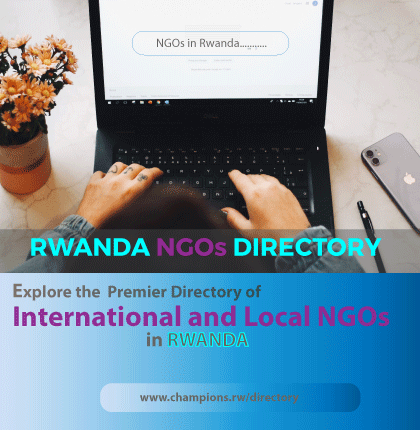Rwanda Reports Drop in Youth Unemployment as Job Creation Expands
Youth unemployment in Rwanda fell significantly in the final quarter of 2025, reflecting gradual improvements in job (…)

Rwanda’s Minister of Health has warned that HIV infections are rising among young people, urging renewed global attention to prevention efforts amid persistent misconceptions that the virus is no longer a threat.
Speaking Sunday during a public fitness event in Kigali, Minister Sabin Nsanzimana said that while Rwanda has made significant progress in reducing new HIV infections over the past 15 years, the virus remains a serious concern — particularly among youth who were not exposed to the epidemic’s earlier severity.
“Some believe HIV is no longer a problem. That’s not true — it’s still here, and it’s increasing among young people,” Nsanzimana said. “They did not experience the crisis at its peak, which may explain the growing sense of complacency.”
The minister encouraged abstinence and consistent condom use, warning that failure to act responsibly could lead to lifelong treatment and broader societal costs.
“Prevention remains the best tool we have. If abstinence is not possible, condoms are accessible and should be used,” he said. “Getting infected doesn’t just affect the individual — it becomes a burden on families and healthcare systems.”
Nsanzimana’s remarks came as Rwanda hosts the 13th International AIDS Society Conference on HIV Science, which began July 13 and runs through July 17. The summit gathers scientists, policymakers and health experts from around the world to review progress in treatment, prevention, and possible pathways toward a cure.
According to data from Rwanda’s Ministry of Health and the Rwanda Biomedical Centre, HIV prevalence among girls aged 15 to 19 is at 6.5%, compared with 1.6% among boys. For the 20 to 24 age group, prevalence is 5.2% in females and 4.5% in males. National statistics from 2023 show that over 9,000 new infections occurred among youth aged 15 to 24, accounting for roughly 35% of all new cases.
Despite these figures, Rwanda has cut overall new HIV infections by 76% in the last 15 years through expanded testing, treatment access, and public awareness campaigns.
The World Health Organization reports that Eastern and Southern Africa remains the most affected region globally, accounting for more than half of all people living with HIV. While antiretroviral therapy has drastically improved life expectancy, HIV remains incurable and is primarily transmitted through unprotected sex, particularly among adolescents and young adults.
Nsanzimana urged young people not only to protect their health but also to avoid behaviors such as drug and alcohol abuse, which can increase risk of infection and undermine long-term well-being.
“The body you have now is the one you will grow old with,” he said. “Take care of it.”
Youth unemployment in Rwanda fell significantly in the final quarter of 2025, reflecting gradual improvements in job (…)
Multiple reports in Rwanda show that gender-based violence against students particularly girls remains widespread, (…)
Since 2017, Rwanda’s “Intore in Technology” youth initiative has trained more than five million citizens, equipping (…)
Rwandan youth are turning innovative ideas into action, launching projects that tackle national challenges while (…)

